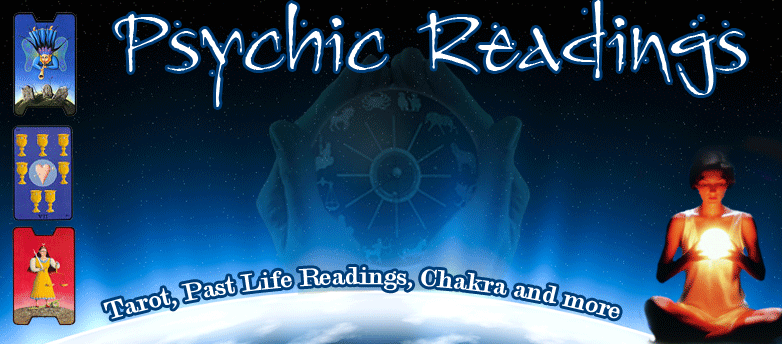The Role Of The Zodiac In Ancient Cultures

Have you ever wondered about the origins and significance of the zodiac?
In ancient cultures, the zodiac played a crucial role in understanding the world and our place in it. From Mesopotamia to Greece, Egypt to China, the zodiac held immense cultural and spiritual significance.
Dating back to the Mesopotamian civilization, the zodiac emerged as a way to map celestial bodies and their movements.
The Greeks, known for their analytical approach, interpreted the zodiac as a tool for understanding human character traits and predicting the future.
Meanwhile, the ancient Egyptians believed that the zodiac held the key to one's destiny and afterlife.
In China, the zodiac took on a different form, with twelve animal signs representing different years. The Chinese zodiac not only influenced personality traits but also played a significant role in matchmaking and determining one's compatibility with others.
By delving into the depths of ancient cultures, this article will explore the fascinating role of the zodiac, providing you with a detailed analysis of its origins and cultural significance.
Get ready to embark on a journey through time and uncover the secrets of the zodiac.
Mesopotamian Origins of the Zodiac
Now let's dive into the mesmerizing world of the Mesopotamian origins of the zodiac, where you'll uncover the ancient secrets that have shaped our understanding of the stars. The zodiac, with its twelve constellations, has had a profound influence on astrology and continues to play a significant role in modern society.
The roots of the zodiac can be traced back to ancient Mesopotamia, where the Babylonians developed a sophisticated system of astrology. They believed that the positions of celestial bodies in the sky could provide insight into human affairs and the course of events on Earth. Through careful observation and meticulous record-keeping, the Babylonians mapped out the zodiac, assigning specific constellations to different months of the year.
The zodiac's influence on astrology cannot be overstated. It serves as a framework through which astrologers interpret the movements of the planets and their relationship to human life. The zodiac provides a language for understanding personality traits, compatibility, and life events based on the alignment of celestial bodies at the time of birth.
In modern society, the zodiac continues to captivate and fascinate people. Horoscopes based on the zodiac are a popular feature in newspapers, magazines, and online platforms. Many individuals turn to astrology and the zodiac for guidance, seeking to understand themselves and their place in the universe.
The Mesopotamian origins of the zodiac have left an indelible mark on human culture. They've given us a tool for exploring the mysteries of the stars and a means of connecting with the ancient wisdom of our ancestors. So, Check it Out read your horoscope or ponder the alignment of the planets, remember the ancient roots of the zodiac and the profound influence it continues to have on our lives.
Interpretations of the Zodiac in Greek Culture
Interpretations of the Zodiac in Greek culture reveal a strong emphasis on celestial influence. The Greek zodiac symbolism is deeply rooted in their mythology, with each zodiac sign having a unique connection to a specific god or goddess. These connections were believed to influence the personality traits and destinies of individuals born under each sign.
For instance, Aries, the first sign of the Greek zodiac, is associated with the god Ares, the deity of war and courage. Those born under this sign were believed to possess the bravery and assertiveness of Ares. Similarly, Taurus, the second sign, is linked to the goddess Aphrodite, representing beauty and sensuality. Those born under this sign were believed to possess an appreciation for art and a strong desire for love and romance.

The Greek zodiac signs were also interpreted in relation to Greek mythology and their understanding of the cosmos. The position of the planets and stars at the time of a person's birth was believed to shape their fate and destiny. This belief in celestial influence led the Greeks to study astrology and develop a rich system of interpreting the zodiac signs.
The interpretations of the Zodiac in Greek culture highlight the significance of celestial influence and the deep connection between the Greek gods and the zodiac signs. The Greek people believed that their destinies and personality traits were influenced by the gods and cosmic forces.
The Zodiac in Ancient Egyptian Beliefs
Explore how the Zodiac played a significant role in shaping your destiny and understanding your personality traits according to the ancient beliefs of Egypt. Egyptian astrology, rooted in the celestial symbolism of the stars, held a deep reverence for the Zodiac.
The Egyptians believed that each individual was born under the influence of a specific zodiac sign, which determined their destiny and personality traits. In Egyptian culture, the Zodiac signs were associated with different deities and celestial bodies. For example, Aries was connected to the god Amun-Ra, representing assertiveness and leadership. Taurus was linked to Hathor, the goddess of love and beauty, symbolizing sensuality and loyalty. This connection between the gods and the Zodiac signified a divine influence on human lives.
The Egyptians also believed that the alignment of the stars at the time of an individual's birth influenced their character and future. By studying the positions of the celestial bodies, Egyptian astrologers could interpret one's personality traits and predict their destiny. This knowledge was highly valued and used to guide important decisions, such as marriage and career choices.
The ancient Egyptians viewed the Zodiac as a powerful tool for understanding human nature and determining one's destiny. By exploring the celestial symbolism and divine associations of the Zodiac signs, they believed they could gain insight into their own personalities and shape their futures accordingly.
Chinese Zodiac and its Cultural Significance
The Chinese Zodiac, deeply ingrained in the rich tapestry of Chinese tradition, paints a vibrant picture of cultural significance and offers a captivating glimpse into the lives and destinies of individuals.
The Chinese Zodiac consists of twelve animal signs, each representing a specific year and carrying its own cultural symbolism. These animals include the rat, ox, tiger, rabbit, dragon, snake, horse, sheep, monkey, rooster, dog, and pig.
Each animal sign is believed to have a profound influence on a person's compatibility and personality traits. For example, those born in the Year of the Rat are said to be intelligent and resourceful, while those born in the Year of the Ox are known for their determination and reliability.
The Chinese Zodiac not only helps individuals understand themselves better, but it also plays a significant role in matchmaking and compatibility.
In Chinese culture, the Zodiac is used for various purposes, such as determining auspicious dates for important events and predicting one's future. The Chinese believe that each animal sign has its own unique characteristics and qualities, which can influence a person's destiny.
Overall, the Chinese Zodiac is more than just a form of entertainment or astrological belief; it is a reflection of Chinese culture and traditions. It provides a fascinating insight into the intricate connections between people, their personalities, and their destinies.
Conclusion
You've now explored the fascinating role of the zodiac in ancient cultures. From its origins in Mesopotamia to its interpretations in Greek culture, the zodiac has played a significant role in shaping belief systems and guiding individuals.
The ancient Egyptians also embraced the zodiac, viewing it as a powerful tool for understanding the cosmos. Meanwhile, the Chinese zodiac holds immense cultural significance, with each animal representing specific traits and characteristics.
Overall, the zodiac has served as a rich and insightful framework for understanding the world and our place within it.
